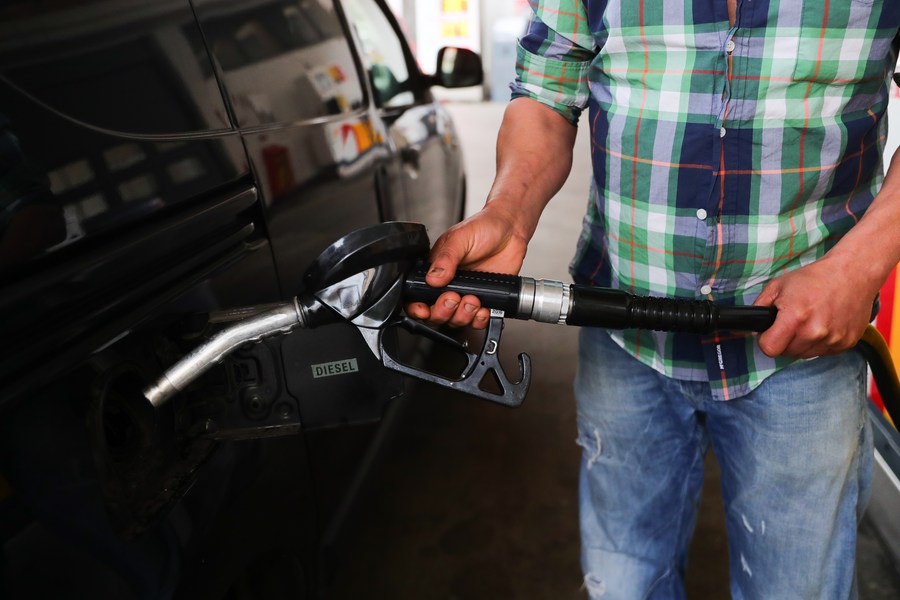EU leaders back ban on Russian oil
By CHEN WEIHUA in Brussels | China Daily | Updated: 2022-06-01 09:15

Though compromise excludes piped supply, Brussels highlights unity
European Union leaders agreed in principle on Monday to ban most Russian oil imports by the end of the year, with the common ground reached in talks that went late into the night in paving the way for the sixth package of sanctions against Russia.
The ban will target only seaborne oil imports, while exempting pipeline imports in a compromise that accommodates the demands of Hungary and several other member states.
"These are very strong signals sent today because (in) the recent hours and recent days there were speculations about the risks of lack of unity, European Union unity," European Council President Charles Michel told a news conference in the early hours of Tuesday after the first day of a two-day EU summit in Brussels.
"I think that we're able to be strong, able to be firm, and we're able to be tough in order to defend our values, to defend our interests."
The sixth round of sanctions, which was first unveiled about four weeks ago by European Commission President Ursula von der Leyen, also excludes Russia's largest bank, Sberbank, from the SWIFT payments system and suspends three additional Russian state-run media outlets from broadcasting in EU.
While Michel first tweeted that the ban will cover two-thirds of Russian oil imports, von der Leyen said 90 percent would be covered. They later explained that the 90 percent included commitments by Poland and Germany to phase out oil imports through the Druzhba pipeline by the end of the year. The Druzhba, meaning friendship, is the world's longest oil pipeline carrying oil to Ukraine, Hungary, Poland, Germany, Slovakia, the Czech Republic and Austria.
"It's a big step forward what we did today," said von der Leyen, admitting that it was a difficult undertaking after the regional bloc decided in April to phase out Russian coal by August.
The EU is the largest buyer of Russian oil, each day taking on average some 2.2 million barrels of crude, along with 1.2 million barrels of refined products, according to figures before the Russia-Ukraine conflict started on Feb 24.
The details covered by the political agreement reached on Monday will have to be finalized by ambassadors of the 27 member states before the oil embargo takes effect.
Member states including Hungary, Slovakia, the Czech Republic and Bulgaria had earlier voiced objections or concerns to the original plan, arguing that it would have had devastating effects on their economies.
Monday's agreement is seen as a huge win for Hungarian Prime Minister Viktor Orban, who led the opposition in the past weeks.
Exemption secured
Besides securing an exemption for pipeline oil imports, Hungary has secured the right to import Russian oil by sea if the country's pipeline deliveries are cut off.
"We have defended the utility cost reduction program … Hungarian families can sleep peacefully tonight," Orban said.
Dutch Prime Minister Mark Rutte expressed his understanding of the concerns of these countries. "They are in a difficult position. In this sense, they have a point," he said, referring to their refineries' ability to use only Russian crude.
But he said that when the EU plans a seventh round of sanctions, it should have an upfront debate about the technicality issue before starting to discuss the actual sanction package.
Rutte's words came as Russian gas company Gazprom said that it was cutting its supply to the Netherlands from Tuesday after Dutch wholesaler GasTerra refused to pay in roubles, as Russia demanded, for fear of breaching EU sanctions.
Guntram Wolff, director of the Brussels-based economic think tank Bruegel, said that it is great that the EU agreed on an oil embargo.
"But the agreement is not ideal. It will take many months until implemented, months during which prices will be high and Russian revenues will increase, rather than decrease," he said in a tweet on Tuesday.
He pointed out that Russia can easily find new buyers for the oil that would have gone to Europe by sea, but the supply going by pipelines can't be redirected.
Oil prices jumped after the EU announced its agreement. US crude futures for July rose 3.19 percent to $118.69, while Brent crude futures rose 1.52 percent to $123.52 during Asian trading on Tuesday, CNBC reported.
























